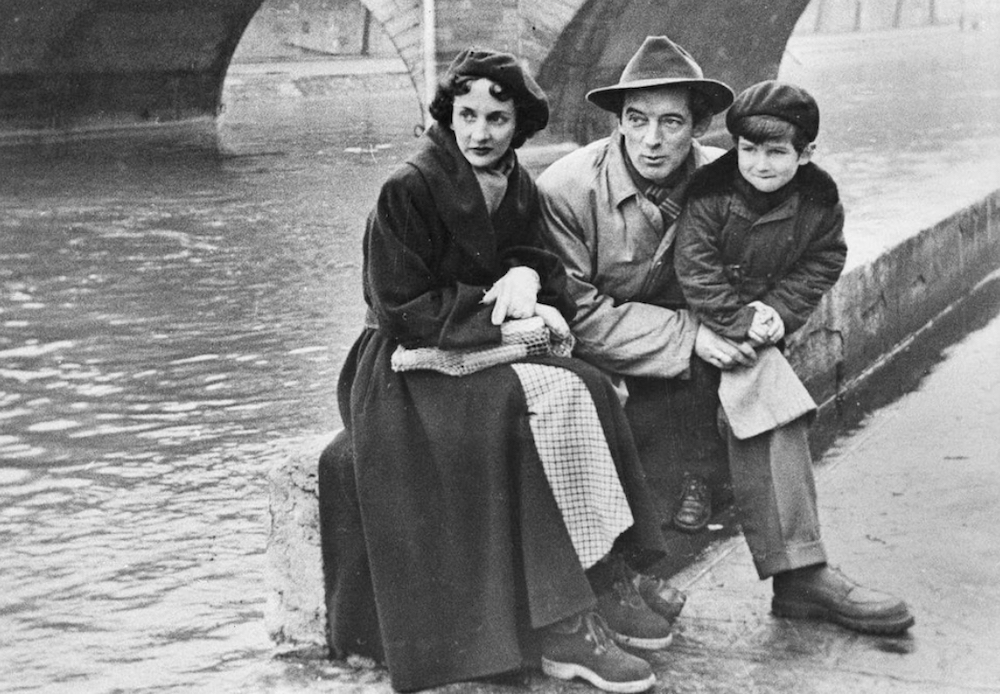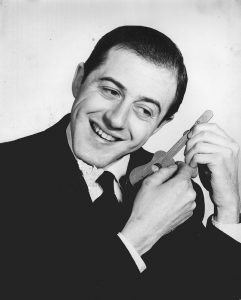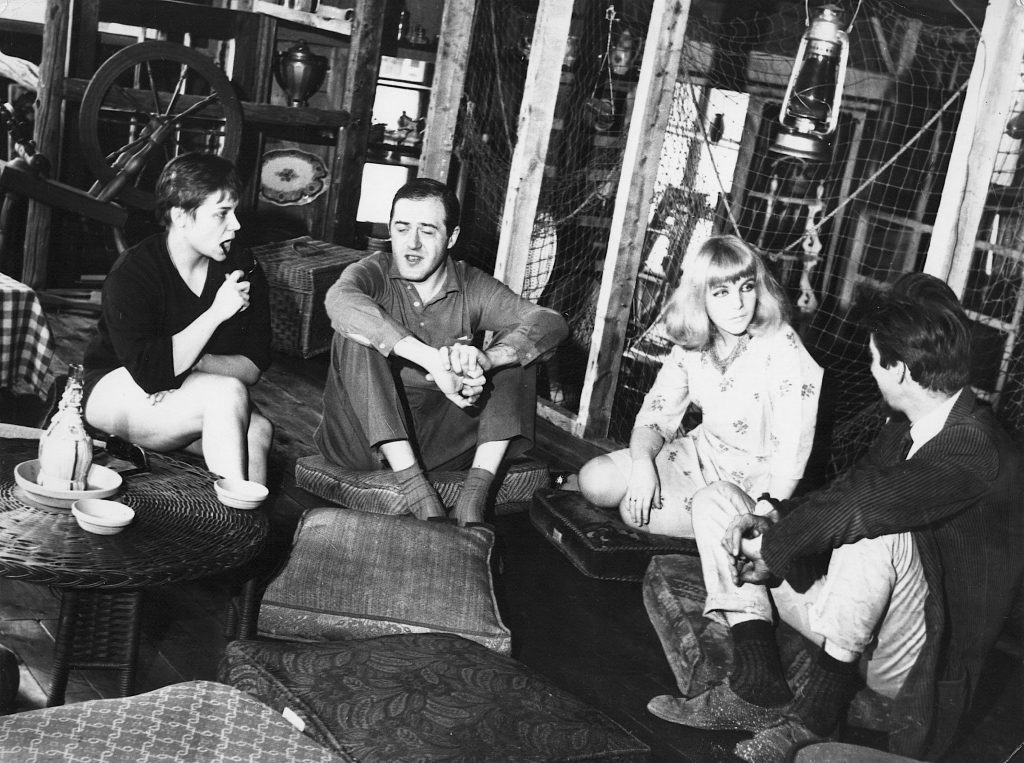The precursors: Félix Leclerc and Raymond Lévesque
In the late 1950s, poets and singer-songwriters Félix Leclerc and Raymond Lévesque left their mark on the history of modern Québec in song. Due to the conservatism of those days, both of them had to go into exile in Paris before being recognized and understood in Québec.
In 1950, Félix Leclerc arrived in Paris for his first French tour. He stayed for three years and his success in France slowly revealed the beauty of his music and lyrics back home in Québec. His poetry, a reflection on the miseries and “small pleasures” of his compatriots, is like a hymn to Québec, to its language, its aspirations, its qualities and defects.
Raymond Lévesque tried his luck in Paris in 1954. He had a difficult start, but learned that his songs were being played on the radio in Québec living rooms and were popular back there. Returning to Québec in 1959, he formed the group Les Bozos with Jacques Blanchet, Hervé Brousseau, Clémence Desrochers, Jean-Pierre Ferland and Claude Léveillée. For Raymond Lévesque, there was no thought of creating a new song without a social and political commitment. This model would define his work throughout his career.
For twelve consecutive summers, from 1961 to 1973, Raymond Lévesque presented reviews of current events at the Butte à Mathieu, his second home. The Butte also welcomed Félix Leclerc on several occasions for memorable shows that would make the Val-David rendez-vous famous.




